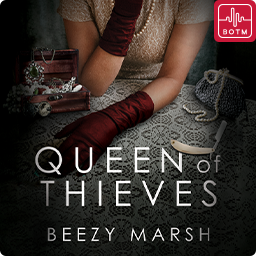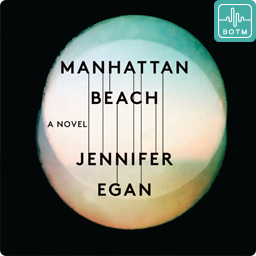

Historical fiction
Pachinko
by Min Jin Lee
Preview
Ear-nings rewards
Ear-nings rewards
0/5
You’re 5 audiobooks away from a free credit!
Quick Take
A novel with its own legend, a big novel to lose yourself in or to find yourself anew'”a saga of Koreans living in Japan, rejected by the country they call home.
Good to know
400+ pages
Feminist
Family drama
Immigration
Synopsis
"There could only be a few winners, and a lot of losers. And yet we played on, because we had hope that we might be the lucky ones."
In the early 1900s, teenaged Sunja, the adored daughter of a crippled fisherman, falls for a wealthy stranger at the seashore near her home in Korea. He promises her the world, but when she discovers she is pregnant—and that her lover is married—she refuses to be bought. Instead, she accepts an offer of marriage from a gentle, sickly minister passing through on his way to Japan. But her decision to abandon her home, and to reject her son's powerful father, sets off a dramatic saga that will echo down through the generations.
Richly told and profoundly moving, Pachinko is a story of love, sacrifice, ambition, and loyalty. From bustling street markets to the halls of Japan's finest universities to the pachinko parlors of the criminal underworld, Lee's complex and passionate characters—strong, stubborn women, devoted sisters and sons, fathers shaken by moral crisis—survive and thrive against the indifferent arc of history.
Why I love it
Alexander Chee
Author
Reading Pachinko was, in many ways, personal to me, at first. My own family is from one of these small fishing islands off the coast of Korea, and this novel’s beginning was like getting to spy on my grandparents’ early lives. It introduced me to their struggles in ways they would never have'”and yet, let me be clear, this novel does much more than to break an intergenerational silence. It also makes their era’s history accessible to American readers in new and marvelous ways.
The writing is remarkable'”the tone never wavers, the prose is flinty and clear. The first line: 'œHistory has failed us, but no matter.' What follows is this masterpiece Lee has written, a captivating family drama that is also a sweeping epic spanning the unknown (to most of us) history of the two countries for most of the twentieth century. It’s also the story of a woman fighting fiercely for her life and her children, in the midst of poverty, war, and unbearable odds.
Most of us do not know the story of Koreans in Japan; people who came to Japan with high hopes, but who find they are treated as second class citizens '“unable by law to own property, subject to discrimination and mockery, a stateless minority. Pachinko sets its story there, beginning in the early 1900s with one Sunja Baek, who becomes pregnant after a short affair with a married man, the son of a rich family. Seeking a better life abroad in Japan she leaves Korea in the company of a sympathetic pastor, as his wife. Japan is a land of opportunity in the minds of Sunja and her Korean countrymen, and they don’t anticipate the hardships that await them in their new home.
The result is a big novel to lose yourself in or to find yourself anew'”a saga of Koreans living in Japan, rejected by the country they call home, unable to return to Korea as wars and strife tear the region apart. The result is like a secret history of both countries burst open in one novel. I hope you love it like I did.























































